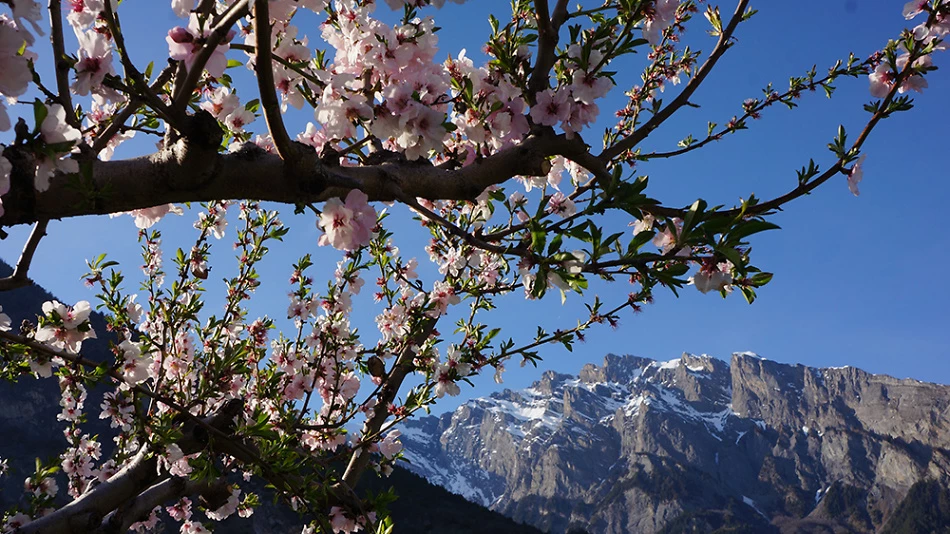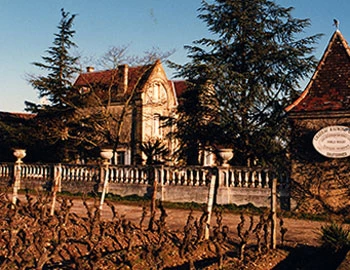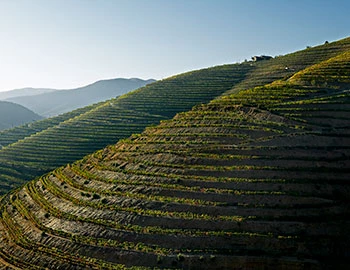Didier Joris
Didier Joris is a legendary figure in the Valais, where the history of wine would be unthinkable without him. He grew up in a farming family that initially concentrated on raising cattle. To this very day, Didier still raves about «his Queens», the Hérens fighting cows. It was only during the 1960s and 1970s that the Joris family began to terrace slopes to plant vines and cultivate vineyards.
As the family did not have much expertise in this sector at that time, young Didier attended the Agricultural College of Châteauneuf. From there he went on to complete an internship in Germany, where he not only gained experience in viticulture, but also as a baker, butcher and in wine laboratories. After qualifying at Changins, he began working as a lecturer and researcher at the College of Oenology and Viticulture at the age of 21. He taught such greats as Marie-Thérèse Chappaz, Jean-René Germanier, Denis Mercier, Marie Bernard Gillioz and numerous other talents.
White wines from Didier Joris
Red wines from Didier Joris
from Didier Joris
In 1982, he opened his own laboratory in Chamoson, which caused quite a commotion within the Valais wine world. The major cooperatives such as Provins were not happy at the fact that he was supporting self-producing wineries. In 1987, the then Chairman of the Board of Directors of Orsat in Martigny (Pascal Couchepin, who would later become a Federal Councillor) appointed Didier Joris as Technical Director of Orsat. In addition to his activities in Changins, he continued to run his laboratory in Chamoson, while also holding numerous mandates as an oenological consultant. He contributed to shaping several great Valais wines, was the forefather of famous assemblages and was even involved in the creation of a winery in Cahors, while acting as oenological consultant to an 800 hectare estate in Bulgaria. That 24/7 workload ultimately became so intense that he decided to call a time out early in 2000.
Consequently, Didier Joris concentrated on his own wines, downsized the laboratory and retained only a few of his consulting mandates. He owns 3 hectares of vines in Chamoson which he cultivates «organically» rather than according to «biodynamic principles» because, in his view, these interfere excessively with microbial life in the soil, for example by ploughing. Didier Joris is deeply convinced that «We must promote biodiversity, pull out weeds by hand and only mow between every second row of vines, so that the insects have a chance to escape safely».
According to Didier Joris, the complete transition of a vineyard to organic cultivation takes 15 years. In the first few years, conversion means investing 30-40% more effort for 25% à 30% less yield.
In the past, while working for Orsat, he was not allowed to market his own products. He therefore sold his few barriques of Chardonnay and Syrah exclusively to top names in gastronomy. Nowadays, Didier Joris delights numerous private customers with his wines. He cultivates typical Valais specialities such as Heida and Petite Arvine, but also international varieties such as Merlot and Cabernet Franc, plus new varieties such as Galotta, Divico as well as the «white Diolle», which was long considered extinct. But the undisputed star in his range is and remains the Syrah variety, which he vinifies in two versions originating from two distinct terroirs. All red wines are fermented spontaneously, while for his white wines, Didier Joris uses selected organic yeasts to avoid any discordant notes.

Producer

Château Raymond Lafon
Located in the heart of the Sauternes area, this winery comprises 18 hectares, 16 of which planted with 80% Sémillon and 20% Sauvignon Blanc. The maximum yield by law is 25 hectolitres per hectare. The yields at Raymond-Lafon average only 8 to 10 hectolitres per hectare; in other words, one vine will produce only one glass of delicious wine. Over several pickings, the grapes are harvested one by one according to their level of maturity. In some years, this can result in up to ten selected hand harvests. This alone lets one appreciate the great value of this wine.

Château Biac
Sometimes life is full of surprises. The Lebanese Asseily family experienced this first-hand when they became the owners of Château Biac as if by accident in 2006. They regularly spent their summer holidays near Biac, but never would they have dreamt that they would own and manage this wonderful property themselves one day. It’s a fascinating story that Tony and Youmna Asseily are happy to share over a glass of their wine.

Quinta de la Rosa
Portugal and England have engaged in wine trading since the 14th century. Over the course of time, the British also settled in Portugal, establishing agricultural estates (quintas) to grow wine, and founding large trading companies in Porto. The Bergqvist family are descendants of these settlers, still involved in production and trade on the strength of innovative ideas and great commitment.





